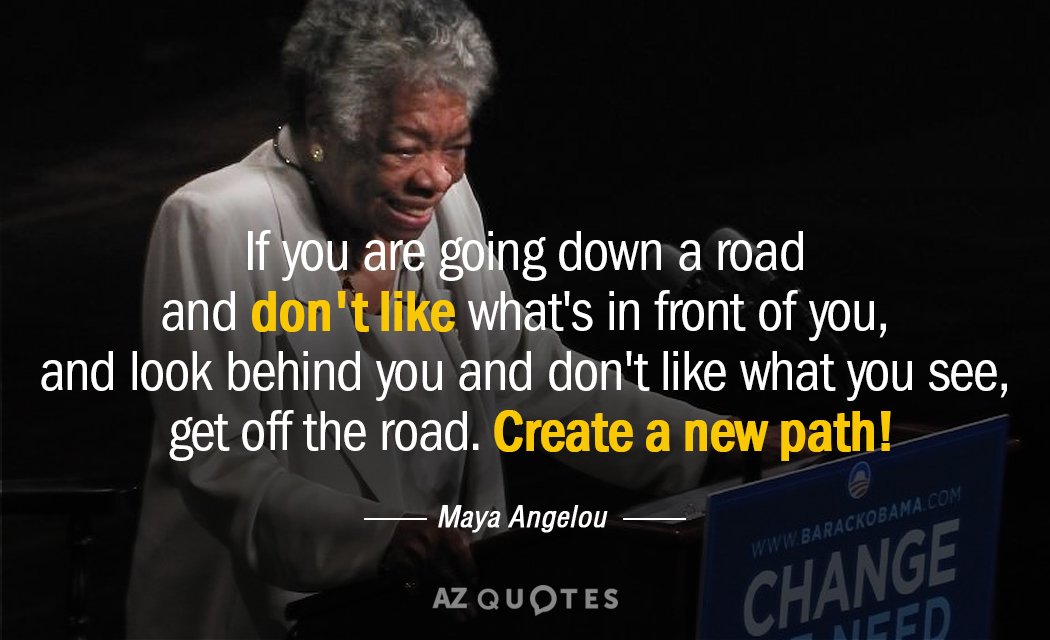Click here to return to Blog Post Intro

Part One: Changes
Where No Body Has Gone Before
When your teen exhibits rapidly changing physical characteristics, it might help to remember this: You’re not the only one who doesn’t recognize this new person in your home. Your middle schooler is struggling to get to know the kid in the mirror, too.
Here are a few observations from teachers –
- Hygiene is important.
- Puberty seems to be happening earlier.
- What teachers used to see in grades six, seven, and eight is now showing up in grades three, four, and five.
Many middle schoolers prefer to get information from someone just a little older than they are. They say they’re too embarrassed to ask their parents, so it’s critical to keep the lines of communication open with your middle schooler.
The Good, the Bad, and the Gangly
With longer legs, arms, and hands, middle schoolers crash into things because they literally no longer know where their bodies end. The good news is that it’s a temporary condition.
Whatever you do, don’t point out their clumsiness or smile when they stumble. You can’t laugh with middle schoolers because they’re too busy squirming with embarrassment to laugh at themselves. And never discuss their awkwardness in front of them.
Sudden growth spurts can cause episodes of fatigue; after all, it takes a lot of energy to grow that quickly. Middle schoolers are also tired because of a physical change in their brains. Unfortunately, just as all this is happening, we’re asking kids to start school earlier and get out later.
How They See (and Don’t See) the World
Teens enter a “Bubble”—a major frustration for parents. It narrows the teens’ view to about two feet away from themselves. They’re oblivious to anything that doesn’t directly concern them. To parents, this looks like self-centeredness.
When you give important information (“Dad will pick you up at 1:00 for an orthodontist appointment. Don’t leave school without your homework assignment, okay?”), have her repeat it to you. That way, you’ll know whether the words penetrated the Bubble. No need to battle the Bubble; it’s going to disappear in its own time and way.
Their greatest fear—unanimous among middle schoolers everywhere—is looking stupid. Middle schoolers may be limiting themselves because of what they think they can’t do. Encourage your kids to discover what they like and what they’re good at.
It’s a fact that you won’t always like your child’s behavior, attitude, and actions during this unpredictable and constantly changing phase of life. But one thing you must communicate is the rock-solid commitment that reassures your child you’ll always love the person he or she is—at any given time. And while you’re maintaining high standards of behavior and insisting on accountability, give some space and grace—and leave room for saving face.
Part Two: Parenting
What Your Child Needs Now
Some parenting experts recommend that parents start operating more in the role of consultants than managers when their kids hit middle school.
To a middle schooler, a double standard is not only unfair, it’s also confusing. Are they supposed to believe what you say is true, or are they supposed to follow what you do?
You may get called out by your middle schooler for what he or she perceives as hypocrisy. If you can’t give a valid reason for why you’re not following your own rules, you’ll lose a lot of credibility unless you confess your guilt and apologize instead of getting defensive.
Helicopter parents can also be a cause of embarrassment for their middle schoolers. It’s important for parents to let their middle schoolers suffer the consequences of irresponsibility, even if it means a missed game or a low grade. Overprotective parents often serve the needs of their children best when they land their helicopters and let their children learn to fly on their own.
Behind Closed Doors
For middle schoolers, self-consciousness and a sudden increase in modesty create a keenly felt need for more privacy. Sometimes they just want time to think about what’s going on their hearts and heads.
Many middle schoolers experiment with shutting themselves away in their bedrooms. After all, they’ve figured out this is their only personal domain at home.
Parents need to be alert without being paranoid. Keep your radar on; trust your instincts when you decide whether the current need for privacy is normal and nothing to worry about, or whether it needs a closer look.
Technical Difficulties
Wise parents will not allow computers or video games in bedrooms, because they know monitoring their use in there is almost impossible. Insist that computers and game consoles be in a more open and public area. It’s also a good idea to have a household rule that cell phones are left in the living room or other public area at bedtime to discourage middle-of-the-night texting. You might even set up one central charging area for everyone’s phone or tablet.
Let’s say you do know how to turn on and use your daughter’s phone. Should you read her text messages? Not necessarily—but you should have the ability to read them if you need to.
Some parents will not allow their middle schoolers to be on any social media site, which is certainly up to personal discretion. Just remember our earlier tip: What is forbidden becomes more desirable. It’s important to sit down and have an open discussion with your middle schoolers about expectations and rules for use, as well as consequences if they break the trust you’re placing in them.
The American Academy of Pediatrics recommends no more than one or two hours a day in front of any electronic device.
Start designing a family contract for your middle schooler to sign in exchange for use of a cell phone, tablet, or computer. Agree to reasonable limits and outline your requirements in writing; then discuss the agreement before both of you sign it.
The Missing Links: Relationships and Communication
When it comes to middle schoolers (and everyone else, for that matter), there are three basic things to remember:
- They want to be listened to.
- They want to be understood.
- They want to be taken seriously.
The word “respect” speaks volumes to middle schoolers.
Here’s a “No-No List”: 10 common mistakes parents inadvertently make in talking to their kids:
- Interrupting. Cutting them off before the end of their story.
- Downplaying feelings.
- Yelling. Considered “going off” by middle schoolers, it usually causes them to stop communicating.
- Using “always” and “never.” Pointing out faults with language about how he always forgets to be responsible or how she never treats you with respect.
- Criticizing. Complaining frequently.
- Using half an ear. Saying “uh-huh” and “hmm” to make it sound like you’re listening even though you’re not. Not making eye contact while the middle schooler is speaking.
- Belittling in front of others. Telling friends and family members about their children’s faults and mistakes.
- Being judgmental. Asking “What were you thinking?”
- Solving their problems. Making them feel inferior by telling them what they should do.
- Being sarcastic. Using a tone of voice that makes you sound serious, but choosing words whose meaning is unclear.
The truth is that despite how it appears sometimes, middle schoolers like to avoid drama with their parents when they can. By providing noncommittal answers, they hope to head off a lecture or a tirade. You will rarely be able to convince your middle schooler that you’re doing your best to treat every child fairly. However, you greatly increase your chances when you listen with empathy and say something like, “It doesn’t seem fair, does it?” Acknowledge their frustration, but don’t feel that it’s always your job to do something about it.
According to middle schoolers, the “cool” parents are the ones who take them seriously, who talk to them as if they were on the same level. They don’t talk down to middle schoolers or point out how much they don’t know; instead, they let them participate in discussions and never make them feel stupid for not understanding something.
Remember, it’s not what you say that matters as much as how you say it.
Too Late to Discipline?
In her book You Can’t Make Me (But I Can Be Persuaded),Cynthia teaches parents strategies for sharing control with their children without compromising parental authority.
Complaints and resistance by your middle schooler can wear you down until you’re tempted to skip the battle of assigned chores altogether. But the benefits of taking responsibility for completing household tasks are many—including better self-esteem, learning important life skills, and practicing a strong work ethic. Parents get the most cooperation when they involve their kids in decisions about who will do what when.
On the subject of discipline, try this: During a calm time, when nobody’s in trouble, ask your middle schooler what form of discipline would be most effective with him or her.
Verbalizing Values
It’s natural to develop questions and doubts about the faith they may have simply taken for granted when they were young children. Wise parents will welcome the questioning as a sign that their children are beginning the process of personalizing their faith, of making it their own rather than merely that of their parents.
Involve your middle schoolers in decisions regarding their worship life, but retain the right to make the final decisions.
Consistently model for them what a life built on faith in God looks like. What happens when we run into challenges to our faith? How do we handle concern about finances or unexpected setbacks?
Lead by your example, and admit your mistakes when they happen. Share more instruction than sermons, more grace than blind justice, more love than retribution.
Sue Acuna explains, “Self-discipline is making yourself do something you don’t want to do, while self-control is keeping yourself from doing something you shouldn’t do. When you get right down to it, adding or subtracting things for Lent (or any other time) is all about those two qualities.”
Part Three: Friends and Other Problems
Finding Where They Fit
Middle schoolers don’t always have a strong sense of “self” because their identities are not yet formed.
There are many unwritten rules—ones that are already familiar to those who know the system—which can be more intimidating than anything in the student handbook. Middle school social rules govern everything from which shoes are acceptable to who sits where in the lunchroom.
The One Big Unwritten Rule is observed by students of all personality types and abilities. It’s The Code, and it says, “You do not get your friends, or people you like, into trouble.” It’s a sign of your loyalty, a test of your friendship; you just don’t rat out your friends.
Young Love, Old Challenges
The Middle school brain doesn’t help with relationships, which can become sources of drama, insecurity, and possessiveness. Studies show that the back part of the brain, where ideas and impulses form, is way ahead of the front part, which is where reason and caution live. So, the voice that says, “You know what would be cool (or hilarious or awesome)?” is much louder than the voice that says, “You could get hurt (or pregnant or grounded).”
Part Four: School
Not So Brave in the New World
There’s a famous saying: “Life is what happens while you’re making other plans.” In middle school, it could be expressed like this: “School happens while your life is absorbed with everything else.”
What about a budget for school purchases? Declare how much you’re willing to spend, and look together at the ads to see what’s popular this year. Maybe you’ll spend extra time for the movie star binder but settle on a backpack that’s cheaper but of good quality. If a graphing calculator is required, point out the impact that the extra expense may have on the clothes budget. Most middle schoolers are capable of being quite reasonable if given enough information.
If you put a lot of pressure on your middle schooler to get high grades, it can increase the temptation to use deceptive means to measure up to expectations. Add the strong influence of peer pressure, and even good students can be tempted to cheat. Instead of pressuring middle schoolers to get good grades or even straight A’s, parents should focus more on helping them polish their study skills.
The earlier middle schoolers learn to motivate themselves, the better off they are—and the more likely it is that the lesson will stick. As parents we will always be needed, but how much we are needed will change. The middle school years provide parents and children with opportunities to shift more responsibility for learning to the students—giving them a chance to prove they can be responsible for their own success.
The Hassles of Homework
As a parent, you’ve invested a lot of time and energy making your child has the best possible system for keeping up with the new school year. But you might be forgetting the most important thing of all: Without input and involvement, your student won’t be invested in the success of any method. There is no ideal, one-size-fits-all system. Every student needs a personalized plan that he or she has helped create.
To take more responsibility for their own success—in school and in life—middle schoolers need to know their strengths.
One of the most common areas that begs for accountability is that of homework—doing it, keeping track of it, and turning it in on time. You can bug your kids about it, dog their footsteps until they do it, and hover over them until it gets delivered to school. Or you can teach them to motivate themselves to get it done.
When problems occur or a middle schooler doesn’t understand the assignment, it’s time for the student—not the parent—to make the initial contact with the teacher.
Getting Teachers on Your Team
Remember, every teacher is a lesson in learning for your child. The more variety your middle schoolers experiences in the classroom, the more opportunities there will be to discover and develop strengths and to use them to cope with uncomfortable demands.
Learning Styles and Learning Disorders
There are three basic modes of remembering:
- Auditory: Learners with a large auditory piece need to hear and talk (verbal communication).
- Visual: Learners with a bigger visual piece need to see—not just physically, but also to be able to visualize what you’re talking about in order to understand and remember what you mean.
- Kinesthetic: Learners who are more kinesthetic need to move and do, and for their minds to be in motion their bodies have to follow suit. Kinesthetic learners remember best when they’re doing something with the information.
Research models put the population into two general categories:
- Analytic: Naturally take in information in a more specific, linear manner, looking for details right away. Analytic learners need time to put things in order, figure them out, and focus on one task at a time. They thrive with structure, predictability, organization and right-or-wrong answers.
- Global: Learners who have a natural bent to be more intuitive—and who constantly look for ways to pull separate details into a bigger picture. These global learners need context, consensus, and team effort.
After School and Out of School
Involvement in school activities has many benefits. However, when your middle schooler is still adjusting to a new building, new teachers, and a new schedule, a wise parent will keep a lighter schedule of extra-curricular activities.
One thing to watch for is how many nights a week your middle schooler isn’t home. More than three or four nights can create major interference with homework. The lateness of the activity also matters. To be successful in class, middle schoolers should get about nine hours of sleep each night.
Some middle schoolers get overly sensitive or extremely moody as the end of the school year approaches. One said, “I just feel all mixed up. I can’t wait for school to be over, but then I get sad when I think about not being able to see my friends every day.”
One of the most common complaints, especially from middle schoolers, is boredom. When you tell them that boredom is a choice, they may object. There’s always something to do if they really want to overcome their boredom. Kids get bored because they expect entertainment to come from outside sources. So “I’m bored” translates into the unspoken command, “Amuse me.”
Finishing Strong
The most important thing to remember is that you must first get your middle schooler to agree that finishing strong is important. Then challenge her to think about what will motivate her to accomplish that.
The first half of every school year is a period of adjustment. The first half of a year of middle school is often a period of drastic adjustment. Take this chance to evaluate progress at the halfway point. The goal is not to punish your child for low grades or unmet expectations. Instead, figure out together what worked and what didn’t. Talk about realistic solutions for improvement. Resolve to finish strong in the first half and then set new goals for the second half.
Sue takes a large group of teenagers on a 10-day mission trip every summer—usually about 60 of them. The hardest day tends to happen a little over halfway through the trip. But she’s figured out a great way to get over the hump and restart the momentum: “I have some words for you: drowsy, yawning, fatigue, exhaustion, sleepy, tired…” “Now, let me give you some new words: Energy! Enthusiasm! Excitement! Pushing through! Stamina! Peppiness!” The students get into it and called out more: “Fun! Happiness! Joy!” If they dwell on how exhausted they were and kept thinking—“I’m so tired; when can we leave?”—they’d make themselves miserable. But if they thought in more positive terms—“I’m having a good time; I can do this”—and focus on what they were doing rather than how they were feeling, they’d be surprised at how much better the day would go.
Sometimes just switching the sentence around to a positive statement instead of a negative one can make a huge difference. Instead of saying, “If that homework isn’t done by dinner, you’re not playing any video games tonight,” you could say, “As long as your homework is done before dinner, you can feel free to play that new video game afterward.” Or instead of saying, “You’d better be out of that shower and ready to go in 15 minutes,” you could say, “Will you have enough time to take a short shower if we have to walk out the door in 15 minutes?” Too often we underestimate the power of being positive.




